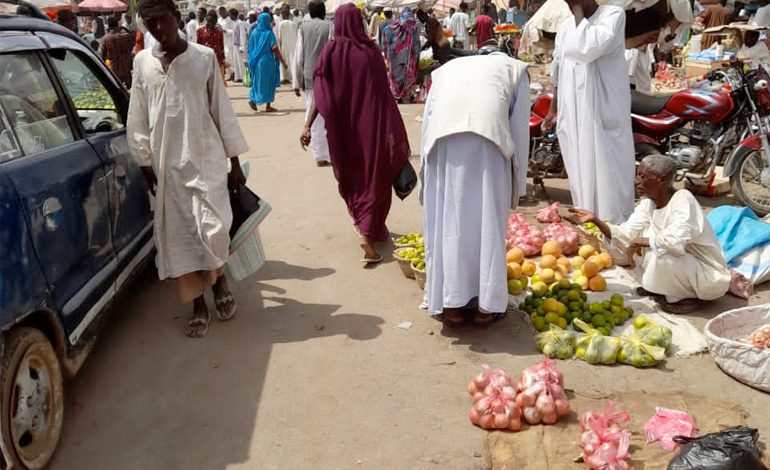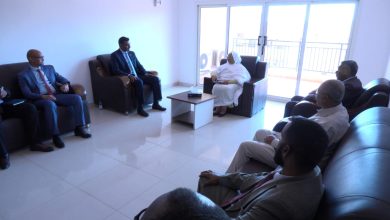Economic
Rising Inflation Rate: A Threat to the “Basket of Supplies”

Report by Rehab Abdullah
The Sudanese economy has been suffering for years from high inflation rates, significantly impacting the value of the Sudanese pound. The inflation rate in Sudan has continued to rise dramatically, reaching record levels in September.
The Consumer Price Index (CPI) recorded 321,699.60 points for August 2024, compared to 101,104.87 points in August 2023, showing an increase of 220,594.73 points, with an annual inflation rate of 218.18%. This indicates that the overall price level rose by 218% compared to the previous year.
One of the main causes of inflation in Sudan is the excessive money supply, which has led to a depreciation of the Sudanese pound. As the currency value decreases, the cost of imported goods rises, pushing up the overall price level in the country. Additionally, supply-side factors, such as rising production costs, especially in the agricultural sector, have also contributed to inflation.
However, given the current circumstances, economic experts attribute the inflation rise to the ongoing conflict between the army and the Rapid Support Forces since April 2023. This conflict has increased poverty levels, making it difficult to keep up with the escalating prices.
Annual inflation is measured by comparing the current month’s general price level to that of the same month the previous year, reflecting price changes over an entire year.
Anger and Complaints
The prices of essential consumer goods in Khartoum and safer states have surged significantly, leading to widespread dissatisfaction and complaints among citizens. Many have expressed that the high inflation rate has heavily impacted family budgets, making it challenging to secure basic necessities. Some even stated that they now only prepare one meal a day for their families.
Inevitable Result of the War
Economic expert Dr. Haitham Mohamed Fathi explained that the rise in the minimum cost of living in Sudan to record levels is due to the lack of production capabilities. He noted that the minimum wage in Sudan covers no more than 5% of the minimum living cost at best. The wide gap between income levels and living costs is the core problem in Sudan’s economic landscape.
In his conversation with Al-Ahdath, he stated, “With the ongoing war, controlling inflation, stabilizing the exchange rate, and narrowing the gap between the official rate and the black market rate to reasonable levels is a difficult step. Therefore, improving the living conditions or reducing the gap between living costs and income levels is essential.”
Fathi also pointed out that high inflation has significantly reduced the purchasing power of citizens by increasing the cost of living. He explained that the high inflation rates are due to both internal and external factors, including the significant decline in the value of the Sudanese pound, which reflects, in many ways, the destruction of Sudan’s economy. The oil industry, a major source of foreign currency, has suffered extensive damage. In addition, foreign direct investments have ceased, and the massive destruction of the manufacturing and agricultural sectors has led to a collapse in domestic production capacity and a decline in exports.
Measures to Control Prices
He noted that the state lost significant income sources and was forced to increase its imports to meet local demand. The growing need to import foreign products and the depreciation of the Sudanese pound have led to higher costs for goods and services in Sudan. The trade balance remains deeply negative, adding ongoing pressure to purchase foreign currency, especially in the black market, further devaluing the Sudanese pound. Moreover, the increased import costs are exacerbated by the reluctance of many countries and private companies to trade with Sudan, and those who do face higher costs due to the ongoing war.
Fathi emphasized the importance of taking measures to control prices, manage import channels, and adjust wages in line with inflation rates. He warned that while raising wages overall might reduce profit margins, it would not affect commodity prices.
War’s Impact
Economist Professor Ibrahim Onour commented that the ongoing increase in the prices of goods and services is expected in a country experiencing internal conflict. He noted that the high inflation rate in the current situation is linked to exchange rates, which have declined similarly to the inflation rate compared to the previous year. The exchange rate of the dollar on the parallel market in July of the previous year averaged around 800 Sudanese pounds per dollar, while it increased to around 2,800 pounds per dollar in July 2024.
Price Hikes
Economist Dr. Abdel Azim Al-Mahal noted a significant increase in the inflation rate recently, leading to a substantial rise in prices. Opinions vary on inflation figures, but many citizens, observing the Sudanese markets, believe it is much higher. The dollar has reached 2,800 Sudanese pounds, production has largely halted, and the economic situation has worsened after rebel forces occupied Wad Madani, Sudan’s economic capital, and advanced toward production areas in Sennar, Singa, and the mechanized farming regions, looting them. Al-Mahal anticipates a decrease in inflation.



